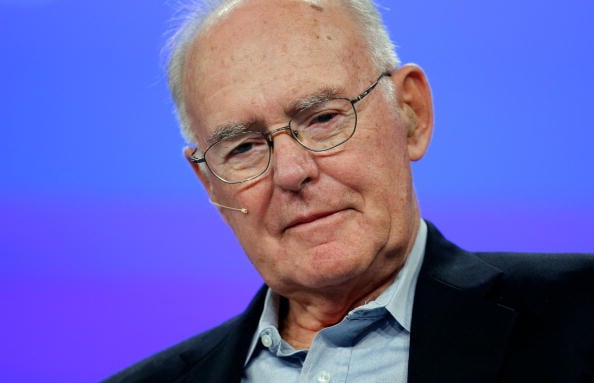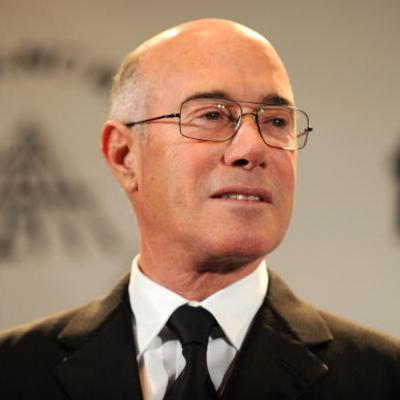What was Gordon Moore's net worth?
Gordon Moore was an American engineer, business tycoon and philanthropist who had a net worth of $7.1 billion at the time of his death in March 2023. Gordon Moore earned his fortune as the co-founder of the Intel Corporation. Gordon co-founded Intel with Bob Noyce in 1968. With the personal computer revolution two decades later, Intel became one of the most significant and important corporations in America. Gordon is also remembered for his famous "Moore's Law," which was published in the April issue of Electronics Magazine in 1965. Moore's Law states that the computing power and miniaturization of computers doubles roughly every two years (meaning computers get twice as small and powerful about every two years). This idea has proven to be an uncannily accurate prediction. In addition to technology, Gordon also proved to be a pioneer in the field of philanthropy. He and his wife Betty Moore donated over $10 billion to charity during their lifetimes. Gordon Moore died on March 24, 2023 at the age of 94.
Early Life
Gordon Moore was born on January 3, 1929, in San Francisco, California. His parents were Raymond Moore and the former Ethel Kinsley. Moore grew up during the Great Depression, and his family struggled financially. Despite this, he showed an early aptitude for science and technology, and he pursued these interests throughout his childhood and early education. He attended Sequoia High School in Redwood City, California, and later enrolled in the University of California, Berkeley, where he earned a Bachelor of Science degree in Chemistry.
Intel
In 1968, Moore co-founded Intel Corporation with Robert Noyce. The company started out producing memory chips but quickly shifted its focus to microprocessors. In 1971, Intel released the first microprocessor, the Intel 4004, which revolutionized the computing industry. This invention enabled the creation of personal computers, mobile phones, and many other devices that have become ubiquitous in modern society.
Moore's Law
In 1965, Moore wrote a paper that became known as "Moore's Law," in which he predicted that the number of transistors on a microchip would double approximately every two years, leading to exponential growth in computing power. This prediction has been largely accurate and has had a profound impact on the technology industry. It has driven innovation, enabled the creation of new products, and spurred competition among tech companies.

Justin Sullivan/Getty Images
Philanthropy
After retiring from Intel in 1997, Moore turned his attention to philanthropy and scientific research. He and his wife, Betty, established the Gordon and Betty Moore Foundation, which has donated billions of dollars to support environmental conservation, scientific research, and patient care. Moore has also contributed to numerous scientific organizations and projects, including the Thirty Meter Telescope and the Allen Institute for Brain Science.
At the time of his death, his foundation had given away more than $5 billion, with around $9 billion in assets under the foundation's management waiting to be given away. The foundation gave $600 million in 2001 to the California Institute of Technology and another $100 million in 2015.
Later Life and Legacy
Gordon Moore continued to be a prominent figure in the tech industry and the world of philanthropy for the remainder of his life. He received numerous awards and honors throughout his life, including the Presidential Medal of Freedom and the National Medal of Technology and Innovation. His contributions to the development of the microprocessor and his prediction of "Moore's Law" have had a profound impact on the world we live in today and will continue to shape the future of technology.
Gordon Moore died on March 24, 2023 at the age of 94. He was survived be his wife Betty, two sons and four grandchildren.







